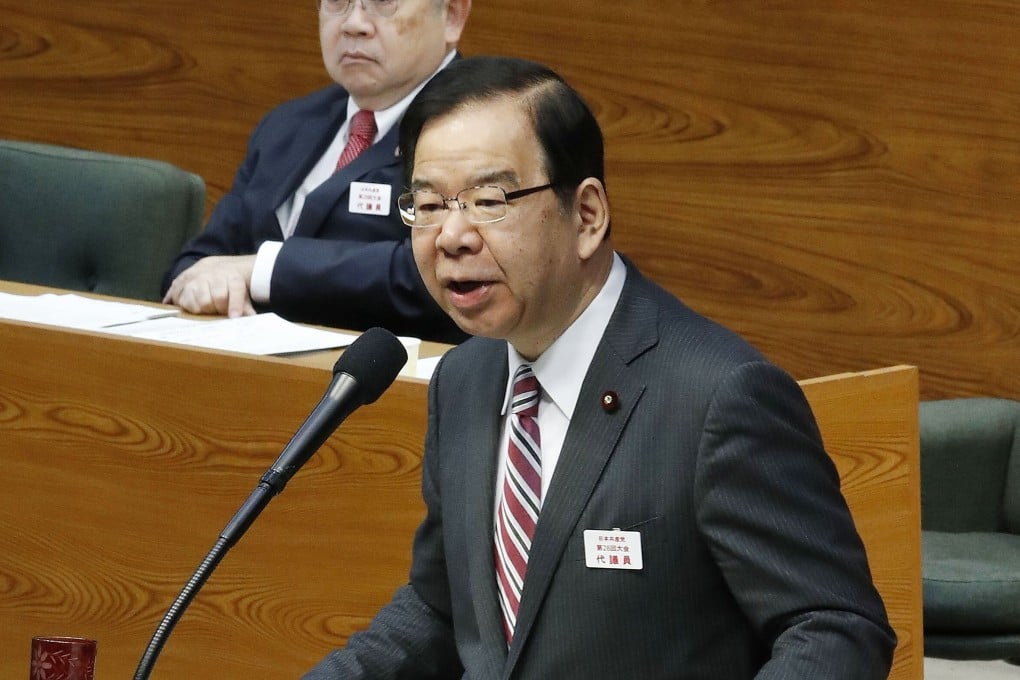Advertisement
Japanese Communist Party snubs China’s Communist Party on centenary, saying it is ‘not worthy’ of name
- The JCP said the Chinese Communist Party’s actions in Hong Kong, Xinjiang and the East and South China Seas are ‘nothing to do with socialism’
- It was the only major Japanese party not to congratulate Beijing, although the government held back, sending a message through the ruling LDP instead
Reading Time:3 minutes
Why you can trust SCMP
30

The Japanese Communist Party (JCP) has doubled down on its efforts to distance itself from its erstwhile ideological ally in Beijing, refusing to congratulate the Chinese Communist Party on the centenary of its founding on July 1. Instead, JCP chairman Kazuo Shii used the anniversary to lambast China’s government in a series of tweets.
He cited Beijing’s “aggressive” territorial claims and described its treatment of Hong Kong and the Uygur Muslim minority in its westernmost province of Xinjiang as “human rights violations”.
“[These] have nothing to do with socialism and are not worthy of the name of a communist party,” he wrote.
The LDP and the other parties do not really care about human rights or many of these other issues
“How can we describe their behaviour in the East China Sea and the South China Sea without calling it ‘supremacy’? What do you call human rights violations against the people of Hong Kong and the Uygurs if not ‘power politics’?
Advertisement
“China must comply with international law; it is important that the international community makes that demand,” he said.
Beijing maintains that the national security law imposed in Hong Kong last year after anti-government protests was necessary to maintain stability, while its policies in Xinjiang are designed to fight extremism and reduce poverty in the region.
Hiromi Murakami, a professor of political science at the Tokyo campus of Temple University, said Shii’s comments were “very surprising because they were so blunt”.
Advertisement
Advertisement
Select Voice
Select Speed
1.00x